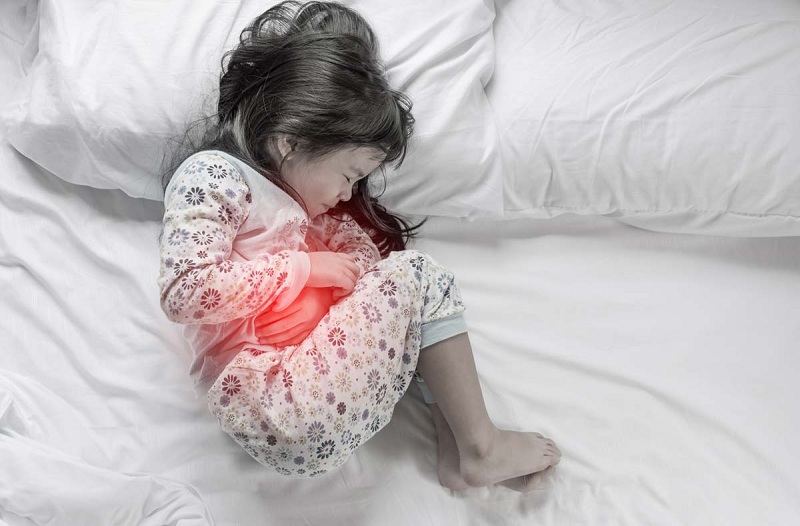Gastritis is an inflammation of the gastric mucosa, occurs in both adults and children. If not treated, the disease can lead to ulceration of the gastric mucosa and even a tumor. How not to miss the first signs of the disease? What to do and how to treat gastritis in a young child? We discuss these issues in our https://www.sideeffects.com article.
Symptoms of gastritis
The most common symptom of gastritis is a burning sensation and pain in the upper abdomen, which children complain before or after eating. In addition to pain, we list other signs of gastritis:
- loss of appetite;
- nausea or vomiting;
- heartburn;
- belching;
- hiccups;
- weight loss;
- bad breath;
- a pronounced whitish coating on the tongue;
- trouble sleeping because of night pain;
- abdominal distension and soreness with pressure;
- a feeling of fullness after small meals (dyspepsia).
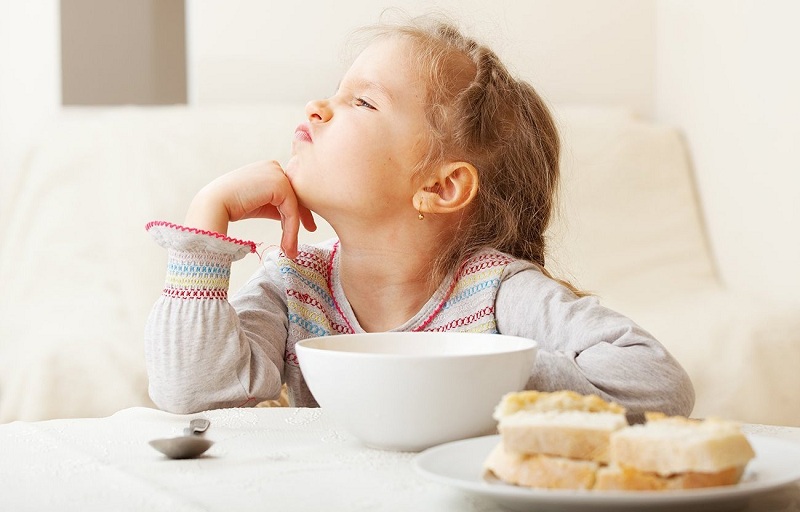
If you notice a black resinous stool in a child, this may indicate bleeding in the gastrointestinal tract. Additional symptoms in this condition:
- weakness;
- fatigue;
- dizziness;
- pale skin;
- fast heartbeat;
- labored breathing;
- Severe pain in the abdomen and back.
In this case, immediately contact a doctor!
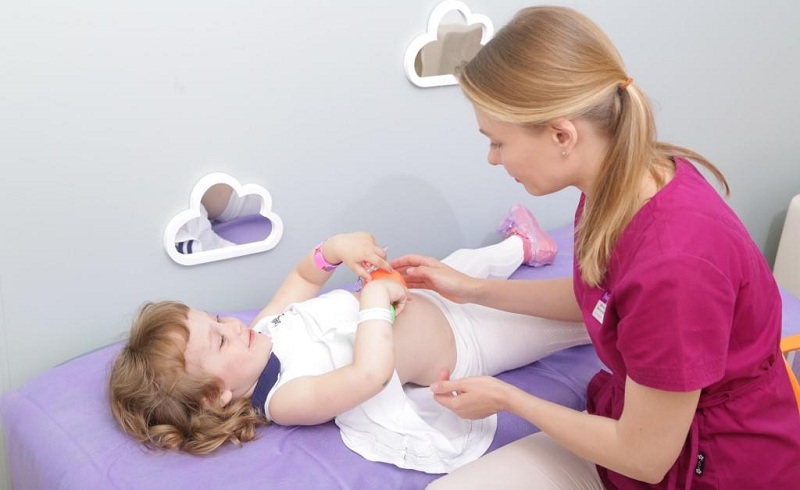
It should be noted that the symptoms may occur suddenly (for example, nausea and burning pain in the abdomen) and not for long – this is how acute gastritis manifests itself. In children, he often makes itself felt in the form of food poisoning after the child has eaten expired yogurt, stale soup. Poor quality and “unwanted” for baby food strongly irritate the stomach, causing fever, vomiting. Poisoning can be viral in nature. If the child feels unwell, do not force him to eat!
If complaints persist for several months or even years, then this indicates chronic gastritis, which often leads to complications: the formation of ulcers, iron deficiency anemia due to bleeding. Symptoms that the child will experience during the chronic course of the disease: dull pain or discomfort in the stomach, feeling of fullness and loss of appetite. However, some children do not experience obvious signs of gastritis at all.
Causes of disease
There are several possible causes of infectious gastritis in young children. One of the most common is infection with the bacterium Helicobacter pylori.
Other culprits of gastritis are:
- poor nutrition;
- injury;
- exposure;
- stress;
- chemical poisoning;
- chronic reflux esophagitis;
- viral, fungal, parasitic infection;
- long-term use of nonsteroidal anti-inflammatory drugs (NSAIDs).
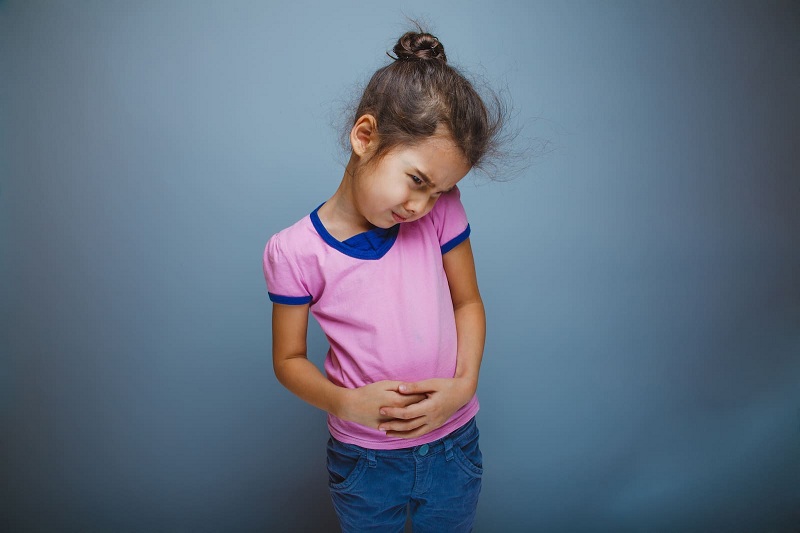
Based on what is diagnosed
Diagnosis of gastritis includes a detailed medical history, physical examination, endoscopy, blood tests (detailed analysis and test for iron), fecal occult blood analysis.
The gastroenterologist can also check the patient’s vitamin B12 level to eliminate pernicious anemia (B12-deficiency anemia). Sometimes the child’s immune system attacks the stomach cells themselves. As a result of this attack, the absorption of vitamin B12 is impaired.
The following diseases can mimic gastritis:
- gastroesophageal reflux disease (GERD);
- peptic ulcer disease;
- gastroparesis;
- biliary dyskinesia;
- colitis;
- pancreatitis;
- stomach cancer (extremely rare in children);
- acute coronary syndrome.
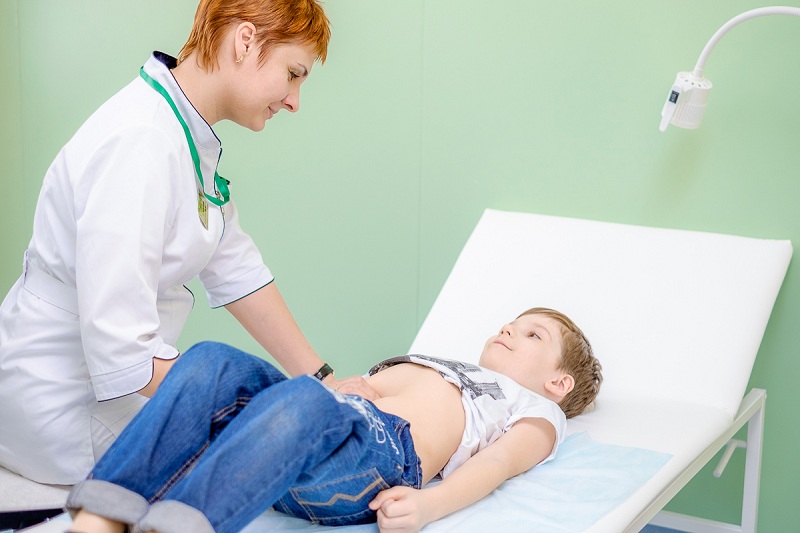
Treatment
The treatment regimen depends on the underlying cause leading to the disease. For example, getting rid of Helicobacter pylori is possible by taking serious antibiotics. Actively multiplying, this bacterium secretes a number of enzymes that enhance the secretion of hydrochloric acid, which leads to a decrease in the protective properties of the gastric mucosa.
In three-year-old children, gastritis often occurs under the influence of several causes. In case of poisoning, you must first clear the stomach and wash it, and then give little sorbents and allow to lie down. So a sick tummy soon pass. The child is offered water (as often as possible, every 5 minutes, a teaspoon), which absorbs toxins. But even if the baby becomes easier, call the doctor! Treatment may need to continue.
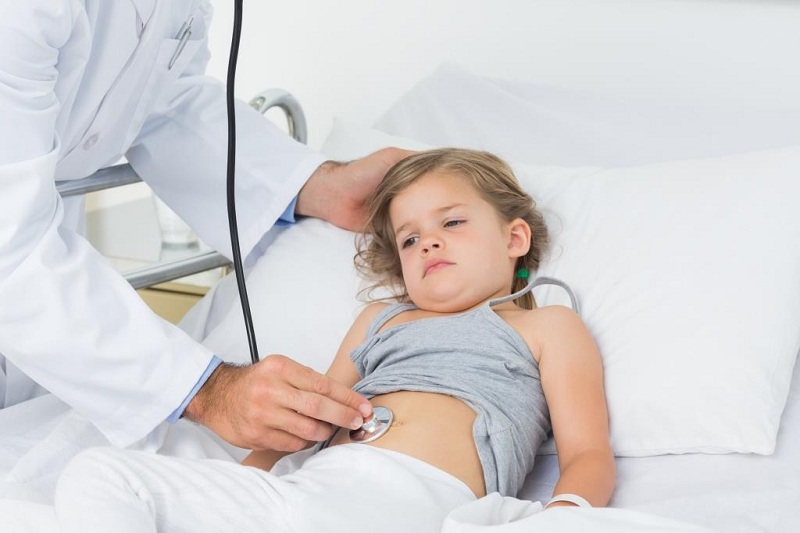
Often, gastritis develops after a burn of the mucous membrane of various chemicals (acid, alkali, alcohol). Mom can be distracted, and the child, having seized the moment, will take a sip of vinegar, detergent, nail polish remover, which is very aggressive in affecting delicate fabrics. Simply put, they cause a fire in the stomach. In this case, erosive gastritis often occurs, which destroys not only the upper but also the deep layers of the mucosa. This form of the disease is dangerous in that it can result in a stomach ulcer and scar formation. While the ambulance is traveling, you can give the child water to rinse your mouth. Just don’t let him swallow it! After rinsing, to reduce pain, you can drink milk or eat a piece of butter.
Prolonged use of anti-inflammatory drugs, antibiotics (even taken in the form of injections, ointments) can trigger gastritis. Do not prescribe medications for your child, always discuss their admission with a competent pediatrician or call an ambulance. If your child has medication for side effects, talk to a specialist. Let him replace the drug.
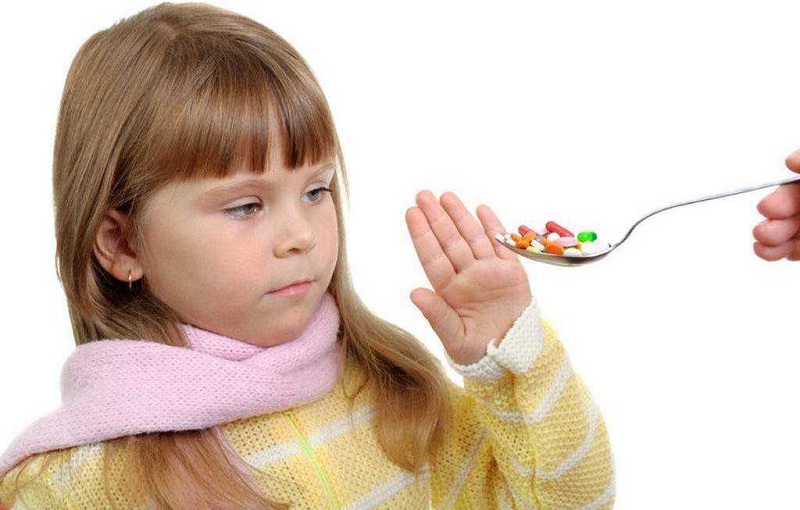
Pay attention to what your child eats, chews food thoroughly and doesn’t replace healthy food with dry bread. Do not give crumbs spicy, salty, fried, smoked dishes, canned food. They irritate the stomach no less than chemicals!
Offer young children a variety of healthy foods: fruits (with or without citrus fruits), vegetables, low-fat dairy products, whole-grain bread, lean meat, and fish. Encourage your baby to eat a little, in small portions, drink enough water. 3 hours before bedtime, it is better not to feed the child with a diagnosis of gastritis.
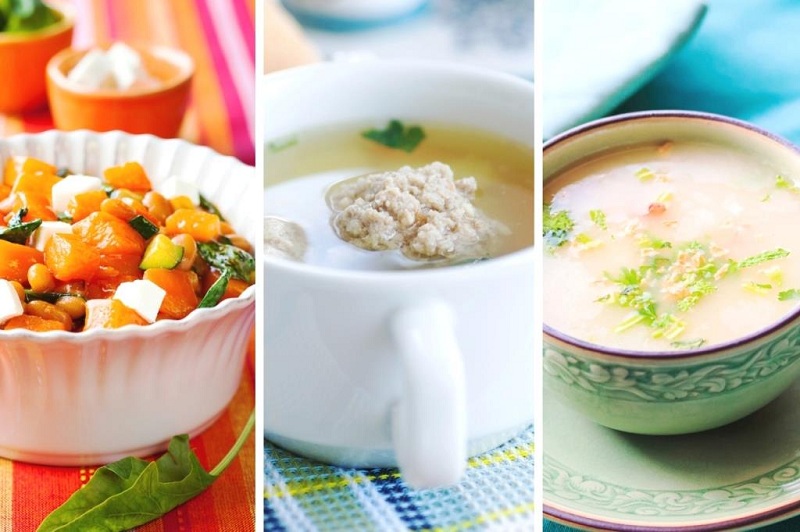
Do not smoke near young children. Nicotine and other harmful substances in cigarettes can exacerbate the symptoms.
Prevention
Since Helicobacter pylori infection is often acquired in early childhood and is transmitted from person to person, the compliance of parents and children with hygiene will help prevent gastritis. Healthy habits include:
- washing hands with soap;
- drinking water from a safe source;
- eating washed and properly prepared products;
- individual use of dishes, toothbrushes.
In addition, mothers of babies should not lick the baby’s nipple or taste its food, bottled drinks.
Parents must observe the elementary safety rules and keep all substances hazardous to the baby’s health out of reach!
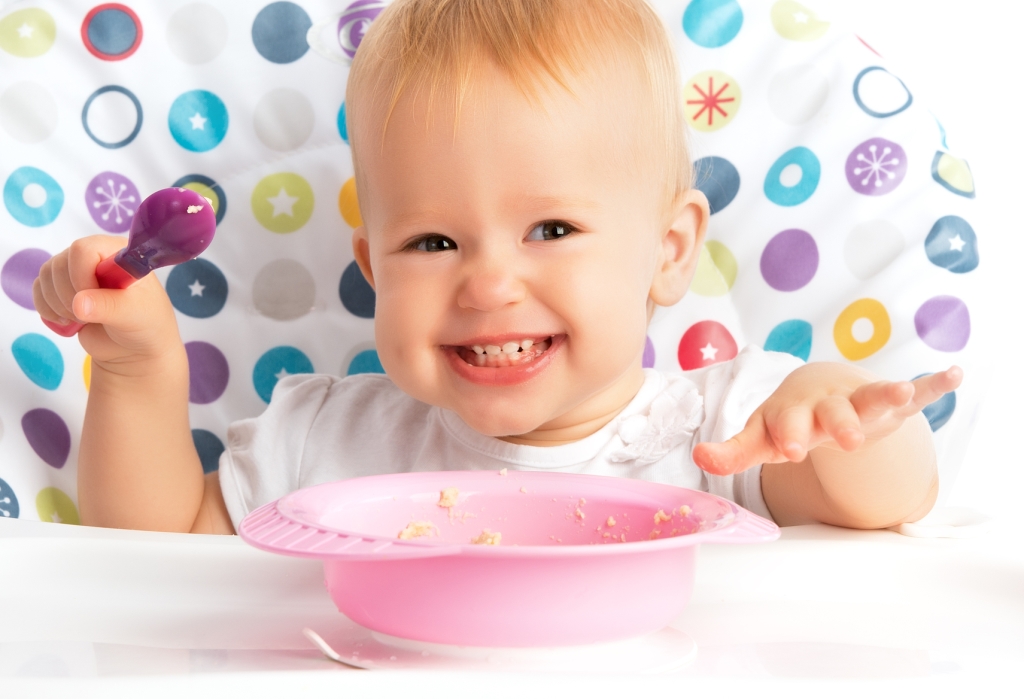
We hope that from our article you have learned all about the manifestations of gastritis in children and that effective treatment options should be discussed with the doctor after the examination.

